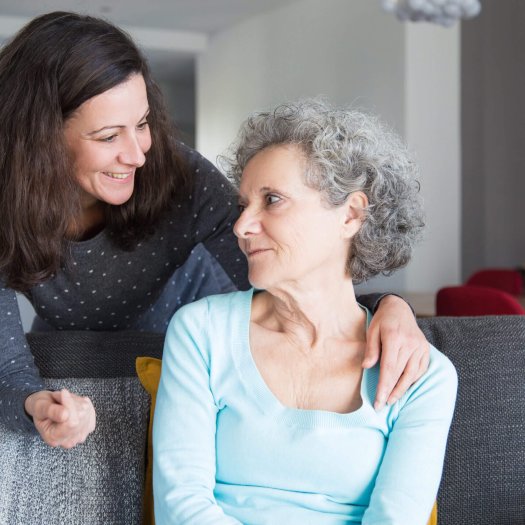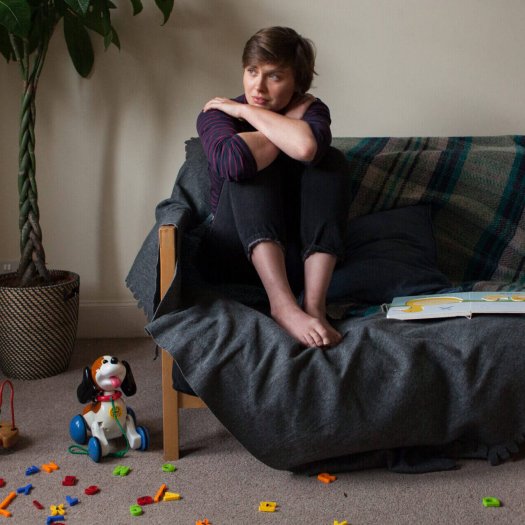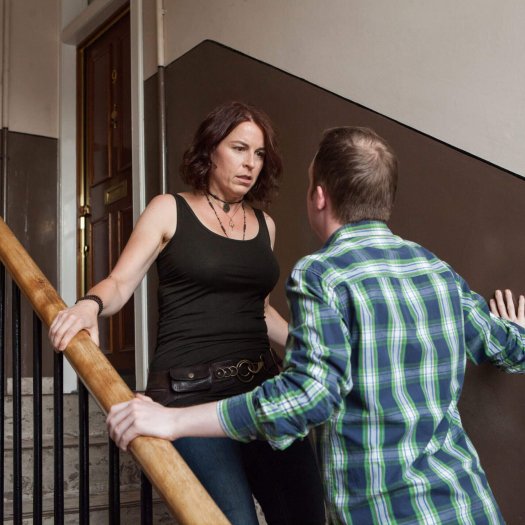Information about Domestic Abuse
How we can help you

What is domestic abuse?
“Domestic abuse (as gender based abuse) can be perpetrated by partners or ex partners and can include physical abuse (assault and physical attack involving a range of behaviour), sexual abuse (acts which degrade and humiliate women and are perpetrated against their will, including rape) and mental and emotional abuse such as threats, verbal abuse, racial abuse, withholding money and other types of controlling behaviour such as Isolation from family and friends. ”
– Scottish Government (2000)

Domestic abuse can happen in any relationship, but we know that overwhelmingly domestic abuse is experienced by women and perpetrated by men. Our service is available to any woman (including transwomen), children and young people who has been subjected to domestic abuse.
Perpetrators can use additional tactics in relation to your gender identity, sexuality, disability, race/religion, age. You might want to have a look at further information in relation to the steps we take to meet the needs of:
- Young women
- LGBT women
- Disabled women
- Deaf and Hard of Hearing women
- Women of colour:
- Honour Based Abuse
- Forced Marriage
- Forced Genital Mutilation
- If English is not your first language
- Women with no recourse to public funds
- Men
Frequently Asked Questions
Who is affected by domestic abuse?

- Global estimates published by the World Health Organisation (WHO) indicate that 1 in 3 (35%) women worldwide have experienced either physical and/or sexual intimate partner violence or non-partner sexual violence in their lifetime.
- Worldwide almost one third (30%) of women who have been in a relationship report that they have experienced some form of physical and or sexual violence by their intimate partner in their lifetime (WHO).
- Globally as many as 38% of murders of women are committed by a male intimate partner (WHO).
- Scottish Government estimates, based on a study in England, found that domestic abuse costs the Scottish public purse £2.3 billion while violence against women and girls costs Scotland £4billion (Scottish Women’s Aid).
- Domestic abuse is exacerbated by other forms of inequality:
- Disabled women are twice as likely to experience men’s violence as non-disabled women (The Daisie Project).
- 83% of trans people experience emotionally, sexually or physically abusive behaviour by a partner or ex partner (Out of sight out of>mind, 2010).
- Black and minority ethnic women and migrant women face higher lives of domestic homicide and abuse driven suicide (Southall Black Sisters).
Will my partner change?
It is completely normal for you to wish that your partner can change and that the abuse will stop. We know however that domestic abuse usually worsens over time, it usually escalates in frequency and severity the longer it goes on.
Abusers can change their behaviour if they:
- Admit their behaviour is unacceptable and take responsibility for their actions.
- Accept that you have a right to live your life without fear of abuse and harm
- Respect you as an equal partner
- Support you in parenting your child
- Recognise their behaviour is a choice that they are responsible for
WAEML is not supportive of counselling, addiction or anger management courses as a method to address an abusers behaviour.
WAEML does support accredited perpetrator programmes for men who want to take responsibility for their behaviour and change. The Caledonian Programme is an example of this although we welcome more research into the effectiveness of these programmes. WAEML staff are happy to discuss accredited perpetrator programmes although we do not work with perpetrators of domestic abuse.
Why does domestic abuse happen?
Men’s violence against women is a huge problem in our society. We know that an abusers’ behaviour is driven in order to control and manipulate. Every abuser is making a choice to behave in the way they do. Being drunk, high, stressed or down is not an excuse. There is no excuse.
Too often where the abuser is violent and abusive we ask what she could have done differently. Domestic abuse is never the victim’s fault and she is not responsible for the abusers behaviour even although she may have been told she is. Women do not deserve any kind of abuse. All relationships have ups and downs; but to be treated in any of these ways is abuse, not a rough patch.
We provide a lot more information through the Freedom Programme.
Recommended reading:
- “Why does he do that?” Lundy Bancroft
- “Coercive Control”, Evan Stark
- “The Freedom Programme”, Pat Craven
- “See what you made me do”, Jess Hill
Why doesn’t she just leave?
One of the most common myths about domestic abuse is that leaving a relationship will bring immediate safety and end the abuse, however this is not true. In fact, the most dangerous time for a woman living with domestic abuse is when she is planning to leave or has just ended the relationship.
In reality, it can be very hard to end an abusive relationship. There are so many reasons why women feel like they can’t leave.
Women living with domestic abuse very likely have low self-esteem; her abuser has probably made her feel unworthy, undeserving, ugly and useless.
Women often feel it is their fault that their partner is abusive and therefore she may feel confused and scared about what will happen if she does leave. It takes time to find the strength and confidence that you need to end any relationship but it takes even longer when there is abuse.
Some women are dependent on their partner, for example to help with money, for care or to help with children. She may have little control over day to decisions and therefore she might feel as though she has no option but to be with her partner. Ending the relationship can mean having to leave the family home and having little or no income. It might mean taking her children out of school, moving away from her family and friends and starting again with nothing. The things she may gain from leaving, like safety from abuse and more confidence in herself, don’t happen overnight and they aren’t guaranteed.
Abusers aren’t abusive all the time. They might bring her gifts, promise they are sorry and that they will change, these are things that might tempt her to stay.
As noted above, ending an abusive relationship can be dangerous. Her partner may have threatened to hurt her, her children or even themselves if she leaves.
For these reasons and many more, it can take several attempts for women to leave a relationship for good. It can be really frustrating if you are aware of or suspect abuse, it’s hard to see someone being hurt. It’s important though to be patient and to understand how difficult her situation is, even if it seems very clear to you. The best thing you can do for listen to her, believe her and support her. Don’t judge her if she isn’t ready to leave.

What does this mean for me and my children?
Lots of victims/survivors describe feeling confused, scared, intimidated, pressured or controlled. They describe during every day life that they feel like they are “walking on eggshells” and that they are unable to do anything right and question themselves often. Domestic abuse is dangerous. We know that over time it escalates in severity and frequency.
Take a look at the Warning Signs of domestic abuse to help recognise behaviours that abusers use to control their partner. You might also find it helpful to take a look or listen to personal testimonies:
Lots of victims/survivors describe feeling confused, scared, intimidated, pressured or controlled. They describe during every day life that they feel like they are “walking on eggshells” and that they are unable to do anything right and question themselves often. Domestic abuse is dangerous. We know that over time it escalates in severity and frequency.
Take a look at the Warning Signs of domestic abuse to help recognise behaviours that abusers use to control their partner. You might also find it helpful to take a look or listen to personal testimonies:

Warning Signs
Answering yes to any of the questions = may be at risk of domestic abuse, signpost to WAEML’s support.
Physical abuse – Does your (ex) partner:
- punch, kick, slap, grab, bite or choke you.
- pull or grab your hair
- prevent you from sleeping
- control what you eat
- hurt you with objects or weapons; for example throwing items at you or threatening you with knives, scissors or guns
- force you to use drugs or alcohol
- hurt your children, family or pets.
Emotional / Verbal Abuse – Does your (ex) partner:
- call you names and constantly put you down
- huff and give you the silent treatment
- make you feel that you can’t do anything right
- act jealous or accuse you of cheating
- question you all the time about where you go, who you speak to and who you spend time with
- have rules in place about how you do things, for example how to take care of the home, how long you have to get to places or speak to someone
- lock you in your home or prevent you from leaving
- make threats to hurt you, your children or others you care about including pets
- blame you for the way they behave or say that you are making it up.
- cheat on you
- criticise how you look or tell you what to wear, whether you can wear makeup or not
- threaten that they will have the children taken from you if you leave
- make you feel like a bad parent, telling the children not to listen to you.
Sexual Abuse – Does your (ex) partner:
- use threats or force you to have sex.
- use sexualised terms to insult you (e.g. slut, whore, frigid).
- pressure you into having sex or performing sexual acts
- hurts you with objects during sex
- have sex with you when you cannot consent (when you are sleeping, under influence of alcohol or drugs)
- involve other people in sexual activities with you without your consent
- forces you to watch pornography or to participate in the making of it
- prevents use or controls your access to contraception and protection
- make threats to share intimate images of you with your friends, family, community or online.
- monitor your social media accounts (i.e. keep track of your friends online, who likes your posts, who messages you)?
- insist that you give them your passwords or hack into your email / social media accounts?
- send you threats or insulting messages?
- constantly message you making you feel like you can’t be separated from your phone?
- use technology or apps to track your movements and activities (GPS, CCTV)?
- put pressure on you to take explicit pictures?
- threaten to or ever share explicit pictures without your consent?
